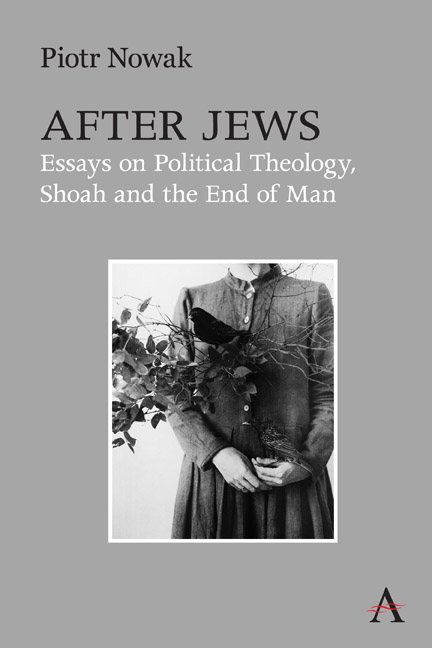Book contents
- Frontmatter
- Contents
- Preface
- Chapter 1 The Chosen Ones
- Chapter 2 The Secret of the Scapegoat
- Chapter 3 Making a Jew into a Christian
- Chapter 4 There Should Be Time No Longer
- Chapter 5 To Look Upon His Face and Yet Not Die
- Chapter 6 Ex oriente lux?
- Chapter 7 Pilloried by Necessity
- Chapter 8 German Rubble
- Chapter 9 Long Live!
- Chapter 10 The Living against the Dead
- Chapter 11 The Child of War
- Chapter 12 Plenty Coups and the End of the World
- Chapter 13 They Refugees
- Chapter 14 The Remainder of Christianity
- Bibliography
- Index of Persons
Chapter 9 - Long Live!
Published online by Cambridge University Press: 13 May 2022
- Frontmatter
- Contents
- Preface
- Chapter 1 The Chosen Ones
- Chapter 2 The Secret of the Scapegoat
- Chapter 3 Making a Jew into a Christian
- Chapter 4 There Should Be Time No Longer
- Chapter 5 To Look Upon His Face and Yet Not Die
- Chapter 6 Ex oriente lux?
- Chapter 7 Pilloried by Necessity
- Chapter 8 German Rubble
- Chapter 9 Long Live!
- Chapter 10 The Living against the Dead
- Chapter 11 The Child of War
- Chapter 12 Plenty Coups and the End of the World
- Chapter 13 They Refugees
- Chapter 14 The Remainder of Christianity
- Bibliography
- Index of Persons
Summary
Rainer Maria Rilke's inscription to Marina Tsvetaeva in a copy of his Duino Elegies, which the Austrian gifted the Russian poet in the 1920s, is a concluding remark of his entire poetic message:
We touch each other. How? With wings that beat,
With very distance touch each other's ken.
One poet only lives, and now and then
Who bore him, and who bears him now, will meet.
For this reason, a round anniversary of the birth of a great poet—and in 2021 we celebrated the centenary of Krzysztof Kamil Baczyński's birth—is, at the same time, the birthday of entire Polish poetry. Long live!
In Poland, “ground” that receives everything of importance is culture. A series of historical events points to this. Above all, over 120 years of geographical and political nonexistence the Poles had survived thanks to culture of the highest merit, thanks to works by the world's greatest poets. Since Polish poets are the best of the best and—as a result—untranslatable, hence, specific, national. They are of absolute importance and urgently needed, indispensable.
We take part in national culture unawares—and willy-nilly. It is as indispensable as oxygen, because, like oxygen, it allows us to breathe freely. What, then, is the nation? Well, the nation has always presented itself to me as the thing that precedes me before I learn to speak. It is, therefore, a language, customs, ethical norms, shared history, as well as shared geography, a space of communal living. In the nation is my origin. The nation has always preceded me and forms me even when it is not quite to my liking. And it will be there when I am gone. The nation is a force that enlightened reformers, every now and then, want to bridle, reform and modernize. Tadeusz Różewicz once wrote that “the poet is certainly someone.” I am not sure that Krzysztof Kamil Baczyński was a great poet. But I do know he is a Polish poet and “certainly someone.”
But Rilke meant much more. He suspected that there is no plural of the word “poet,” that they all strive to sing one and the same song out to the world. There is something to it. In Juliusz Słowacki's Król Duch (The Spirit King), spirits of the dead become incorporated into various people.
- Type
- Chapter
- Information
- After JewsEssays on Political Theology, Shoah and the End of Man, pp. 123 - 132Publisher: Anthem PressPrint publication year: 2022



